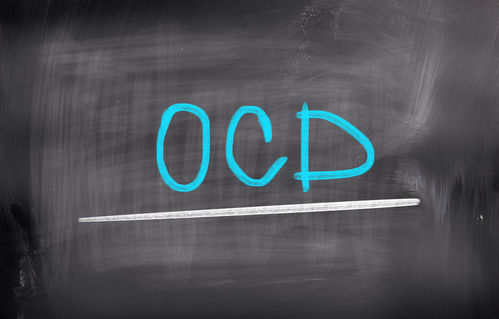
Obsessive-Compulsive Disorder OCD
Nation Alliance on Mental Illness1, “A woman visits her dermatologist, complaining of extremely dry skin and seldom feeling clean. She showers for two hours every day.
A lawyer insists on making coffee several times each day. His colleagues do not realize that he lives in fear that the coffee will be poisoned, and he feels compelled to pour most of it down the drain. The lawyer is so obsessed with these thoughts that he spends 12 hours a day at work — four of them worrying about contaminated coffee.
A man cannot bear to throw anything away. Junk mail, old newspapers, empty milk cartons all “could contain something valuable that might be useful someday.” If he throws things away, “something terrible will happen.” He hoards so much clutter that he can no longer walk through his house. Insisting that nothing be thrown away, he moves to another house where he continues to hoard.
A 10-year-old girl keeps apologizing for “disturbing” her class. She feels that she is too restless and is clearing her throat too loudly. Her teachers are puzzled and over time become annoyed at her repeated apologies since they did not notice any sounds or movements. She is also preoccupied with “being good all the time”.
These people suffer obsessive-compulsive disorder (OCD). The National Institute of Mental Health estimates that more than 2 percent of the U.S. population, or nearly one out of every 40 people, will suffer from OCD at some point in their lives. The disorder is two to three times more common than schizophrenia and bipolar disorder.”
“It’s like the meanest, wildest monkey running around my head, constantly looking for ways to bite me.” That was how Kirsten Pagacz2 described her OCD to her therapist in their first session when she was well into her 30s―she’d been following orders from this mean taskmaster for 20 years, without understanding why.
Initially, the tapping and counting and cleaning and ordering brought her comfort and structure, two things lacking in her family life. But it never lasted; the loathsome self-talk only intensified, and the rituals she had to perform got more bizarre. By high school she was anorexic and a substance abuser―common “shadow syndromes” of OCD. By adulthood, she could barely hide her problems and held on to jobs and friends through sheer grit. Help finally came in the form of a miraculously well-timed public service announcement on NPR about OCD―at last, her illness had an identity.”
Alison Dotson3, “If you could share just one piece of advice with others who have OCD, what would it be?”
Kirsten, “OCD is not your fault; it is a real medical condition. One step at a time and make your end goal mental health and wellness. Life is too rich and too wonderful to have it crushed by any illness, especially one that you can do something about. I value my time and my life so much — I cherish it and I keep doing the work that keeps me in the driver’s seat and OCD in the sidecar. OCD might pipe up with “Don’t you want to check the stove one more time?!” and I say, “Not today OCD, not today!”
Counseling on Demand can guide you through OCD. Habitual behavior is not necessarily OCD. Need an assessment? It may very well set your mind at ease.
We are online at CounselingonDemand.com in confidence and away from prying eyes.
Effective Online Counseling…Only a Click Away
- Nation Alliance on Mental Illness, namimi.org/mental-illness/obsessive-compulsive-disorder, Reviewed by Judith Rapoport, MD May 2003
- Kirsten Pagacz, Author, LEAVING THE OCD CIRCUS: YOUR BIG TICKET OUT OF HAVING TO CONTROL EVERY LITTLE THING
- Alison Dotson interviewing Kirsten Pagacz, alisondotson.com/2016/10/04/tuesday-qa-kirsten-pagacz/